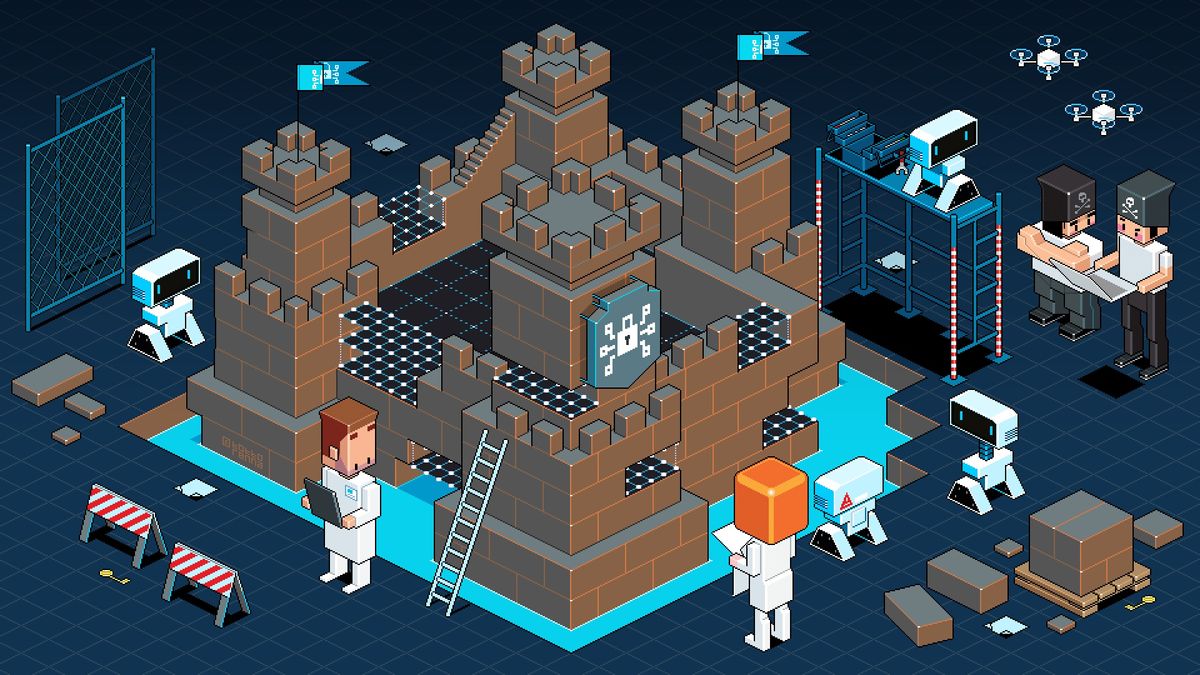Quantum computers will be a dream come true for hackers, risking everything from military secrets...

The Quantum Threat: Securing Our Data in a Post-Quantum World
The Dawn of Quantum Computing
Quantum computers are on the horizon, promising unprecedented computational power. Unlike classical computers, these machines leverage quantum mechanics, using qubits that can exist in multiple states simultaneously. This allows them to tackle complex problems beyond the reach of current technology. Imagine modeling subatomic particles or optimizing logistics with unparalleled efficiency.
However, this power also presents a significant threat to our data security. Rebecca Krauthamer, a technological ethicist and CEO of cybersecurity firm QuSecure, emphasizes this duality: "Like many powerful technologies, you can use [quantum computing] for great good. And you can also use it for malicious purposes."
Post-Quantum Cryptography: Building New Fortresses
As we transition to a quantum era, our current cryptographic methods, largely based on factoring large prime numbers, will become vulnerable. Quantum computers, using algorithms like Shor's algorithm, can crack these codes exponentially faster than classical computers. This necessitates a new era of cryptography – post-quantum cryptography.
Scientists are racing to develop quantum-resistant algorithms, some based on newly-developed mathematics, others revisiting centuries-old equations. The core goal is to create cryptographic systems that can withstand attacks from quantum computers, even when running on our current classical machines.
Michele Mosca, co-founder and CEO of cybersecurity company evolutionQ, offers a striking analogy: "It's like a foundation for a three-story building, and then we built a 100-story skyscraper on it. And we're kind of praying it's OK."
Reinventing the Building Blocks: Lattices, Hash Functions, and More
The National Institute of Standards and Technology (NIST) is at the forefront of this cryptographic revolution, exploring several promising approaches. Three contenders involve structured lattices, complex multi-dimensional structures. These problems focus on calculating vectors within the lattice, a task computationally infeasible for even powerful quantum computers.
Another approach utilizes hash functions, which scramble and compress keys into shorter codes. Hash functions are already widely used, making their quantum-resistant upgrade potentially more straightforward.
Beyond NIST's focus, other promising avenues exist. The McEliece cryptosystem, based on error-correcting codes, and the Hamming Quasi-Cyclic (HQC) code offer alternative solutions, each with its own advantages and challenges in terms of security and efficiency.
Even elliptic curve cryptography, with roots in ancient Greece, is being re-examined as a potential quantum-safe solution. However, some experts argue its vulnerability to Shor's algorithm makes it a less desirable option.
No Silver Bullet: A Multi-Layered Approach
There's no single solution to the quantum threat. As Britta Hale, a computer scientist, explains, the ideal algorithm depends on the specific data being protected. A multi-layered approach, utilizing different algorithms for different security needs, is crucial.
Cryptographic agility, the ability to quickly switch between algorithms, becomes paramount. This allows organizations to adapt as new vulnerabilities are discovered.
The Urgency of Now: Harvest Now, Decrypt Later
While cryptographically relevant quantum computers are still some years away, the need for action is immediate. Upgrading existing systems can take years, particularly in complex infrastructure like military systems.
Furthermore, the "harvest-now, decrypt-later" threat looms large. Malicious actors can collect encrypted data today, anticipating the ability to decrypt it with future quantum computers.
The Ever-Evolving Landscape
The quest for quantum-safe cryptography is an ongoing race. As Mosca emphasizes, "The world needs to keep working on this because if these [post-quantum equations] are broken, we don't want to wait 20 years to come up with the replacement." The future may involve encryption algorithms running on quantum computers themselves or even methods to counter quantum artificial intelligence. The battle for data security in the quantum age has just begun.